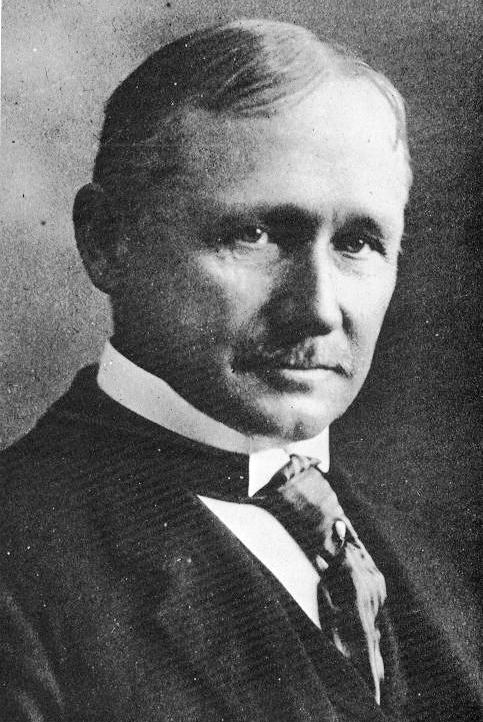Source: Principles of Scientific Management, 1911, p. 64.
Famous Frederick Winslow Taylor Quotes
Source: Principles of Scientific Management, 1911, p. 7: Introduction.
Source: Principles of Scientific Management, 1911, p. 59.
Source: Principles of Scientific Management, 1911, p. 87 (2014 ed.).
Source: Shop Management, 1903, p. 1373.
F.W. Taylor (1906). " On the Art of Cutting Metals https://babel.hathitrust.org/cgi/pt?id=mdp.39015023119582;view=2up;seq=64," Transactions of the American Society of Mechanical Engineers, Vol. XXVIII, 1906, pp. 31–350.
Frederick Winslow Taylor Quotes about time
Source: Shop Management, 1903, p. 1346.
Source: Principles of Scientific Management, 1911, p. 39.
Source: "A Piece-rate System," 1896, p. 90; Cited in: Morgen Witzel, Fifty key figures in management. Routledge, 2004. p. 250.
Source: Testimony of Frederick W. Taylor... 1912, p. 107.
F.W. Taylor (1886), " Comment to "The Shop-Order System of Accounts https://archive.org/stream/transactionsof07amer#page/475/mode/1up," by Henry Metcalfe in: Transactions of the American Society of Mechanical Engineers, Vol 7 (1885-1886), p. 475; Partly cited in: Charles D. Wrege, Ronald G. Greenwood (1991), Frederick W. Taylor, the father of scientific management. p. 204.
Source: Shop Management, 1903, p. 1351.
Frederick Winslow Taylor Quotes
Source: Testimony of Frederick W. Taylor... 1912, p. 110.
Context: I ordinarily begin with a description of the pig-iron handler. For some reason, I don’t know exactly why, this illustration has been talked about a great deal, so much, in fact, that some people seem to think that the whole of scientific management consists in handling pig-iron. The only reason that I ever gave this illustration, however, was that pig-iron handling is the simplest kind of human effort; I know of nothing that is quite so simple as handling pig-iron. A man simply stoops down and with his hands picks up a piece of iron, and then walks a short distance and drops it on the ground. Now, it doesn’t look as if there was very much room for the development of a science; it doesn’t seem as if there was much room here for the scientific selection of the man nor for his progressive training, nor for cooperation between the two sides; but, I can say, without the slightest hesitation, that the science of handing pig-iron is so great that the man who is fit to handle pig-iron as his daily work cannot possibly understand the science; the man who is physically able to handle pig-iron and is sufficiently phlegmatic and stupid to choose this for his occupation is rarely able to comprehend the science of handling pig-iron; and this in ability of the man who is fit to do the work to understand the science of doing his work becomes more and more evident as the work becomes more complicated, all the way up the scale. I assert, without the slightest hesitation, that the high-class mechanic has a far smaller chance of ever thoroughly understanding the science of his work than the pig-iron handler has of understanding the science of his work, and I am going to try and prove to your satisfaction, gentlemen, that the man who is fit to work at any particular trade is unable to understand the science of that trade without the kindly help and cooperation of men of a totally different type of education, men whose education is not necessarily higher but a different type from his own.
Source: Principles of Scientific Management, 1911, p. 87.
Source: Shop Management, 1903, p. 1352.
Source: Principles of Scientific Management, 1911, p. 10; As cited in: Frank B. Gilbreth (1912). Primer of scientific management https://archive.org/stream/primerofscientif00gilbrich#page/1/mode/1up, p. 12.
“I think no book is more stimulating than the history of a devoted and successful life.”
F.W. Taylor (1911) in letter to John Fritz, who just published his autobiography; Cited in: Frank Barkley Copley, Frederick W. Taylor, father of scientific management https://archive.org/stream/frederickwtaylor01copl, 1923. p. v.
Source: Testimony of Frederick W. Taylor... 1912, p. 111.
Source: Testimony of Frederick W. Taylor... 1912, p. 111.
Source: Principles of Scientific Management, 1911, p. 9; Lead paragraph ; Chapter 1: Fundamentals of Scientific Management.
Source: Shop Management, 1903, p. 1343.
Source: Testimony of Frederick W. Taylor... 1912, p. 148 ; Cited in: Frank Barkley Copley. Frederick W. Taylor, father of scientific management https://archive.org/stream/frederickwtaylor01copl#page/n5/mode/2up. Published 1923. p. ii.
